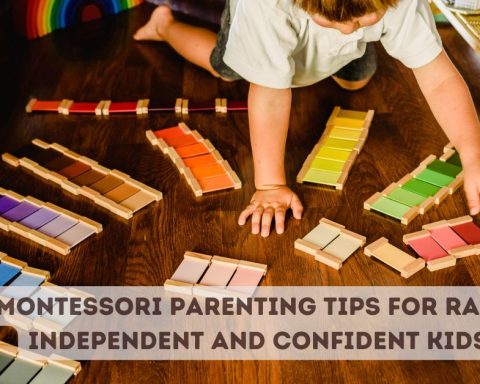Parents are very much concerned with their babies’ physical comfort and nutrition because they want their children to become healthy and physically strong.
Likewise, parents need to give equal importance and attention to their babies’ emotional needs and nurturing in order to raise balanced, caring, and empathetic individuals. These are the traits of godly parenting and parenting with grace.
Your Baby’s Brain
Human emotions are linked to an infant’s brain. A baby’s brain is underdeveloped and at a primeval level at birth. Positive and godly parenting and bonding contribute to the proper development of the baby’s higher brain.
The brains of babies at birth typically comprise billions of cells, yet the interconnection between the brain cells happens after birth. The better the cells are able to connect with one another, the higher your baby’s emotional intelligence and social development will be in the long term.
What Role Does Positive Parenting Play in My Baby’s Emotional Brain Development?
The way parents interact with their baby and the way they address their baby’s emotional needs have a deep impact on the baby’s development. The simple acts of responding to your baby’s crying and distress by holding, talking, rocking, and cooing are of profound importance in parenting with grace because they help form vital links between the brain cells.
Above all, godly parenting requires parents to respond patiently to their infant’s needs and distress. Since an infant’s brain is not mature enough to understand unfamiliar situations and stimuli, any stimulation acts as an emotional trigger. Infants respond to unfamiliar and unpleasant triggers by crying and screaming.
Since babies don’t know how to calm and soothe themselves at this stage, they need a parent or caregiver to respond to them emotionally and physically. The necessary emotional and physical response at the appropriate time enables the frontal lobes in infants’ brains to create the neuropathways that help babies learn to soothe themselves in the future.
Five Things to Do to Encourage Social and Emotional Brain Development in Your Baby
Respond to Your Baby’s Physical Needs
Babies cry when they are hungry, tired, distressed, or wet, so make sure to feed the baby, change the baby’s diapers, bathe the baby, and change the baby’s clothes as needed.
During the initial few months of life, the baby needs assurance that the parents will provide nourishment, hygienic care, physical warmth, and security in a consistent and timely manner. This is part of parenting with grace.
Research states that “Infants display a variety of discrete affective expressions that are appropriate to the nature of events and their context. They also appreciate the emotional meaning of the affective displays of caretakers.”
Encourage Plenty of Sleep
Newborns should be sleeping eight hours during the daytime and eight hours at night, broken down into separate naps. Even when babies are resting physically as they sleep, their brains are still busy. The left and right hemispheres of the brain are developing new connections and fortifying existing ones. This process forms the basis of future learning potential, behavior, and mannerisms in young ones.
Provide Enough Face-to-Face Human Contact
Babies need human contact for healthy emotional development. In fact, according to research, “infants are genetically biased towards interaction with other people from the beginning.” Once babies are able to recognize their parents, they don’t want someone who merely provides for their physical needs, but they also want someone with whom to interact. Loving interaction with the mother and other friendly adults plays an important part in a baby’s social and emotional development.
Soothe the Baby When He or She Cries
Responding to an infant’s when he or she cries isn’t spoiling it. It is all about practicing godly parenting and parenting with grace. Babies cry when they are in distress and need physical stimulus, such as humming, cooing, patting, cradling, rocking, bouncing, and swaddling. Soothing the baby creates a sense of security and assurance during distress.
Embrace Your Baby’s Uniqueness
Even in infancy, babies have their own unique personalities. Some babies are naturally calm; others are fussy. Some are deep sleepers; others are light sleepers. Some are alert; others are nonresponsive. Some smile a lot; others don’t. Godly parenting requires parents to embrace their baby’s distinctness, appreciate it, and respond to it accordingly.
Babies whose physical, emotional, and social needs are met in an appropriate manner through godly parenting become emotionally balanced, responsible, and empathetic individuals.

References
- Ainsworth, Mary D. Salter, Silvia M. Bell, and Donelda F. Stayton. “Infant-Mother Attachment and Social Development: Socialization as a Product of Reciprocal Responsiveness to Signals.” In The Integration of a Child into a Social World. Edited by M. P. M. Richards, 99–135. New York: Cambridge University Press, 1974. Retrieved from http://psycnet.apa.org
- Tronick, Edward Z. “Emotions and Emotional Communication in Infants.” American Psychologist 44, no. 2 (1989): 112–119. Retrieved from http://psycnet.apa.org/record








